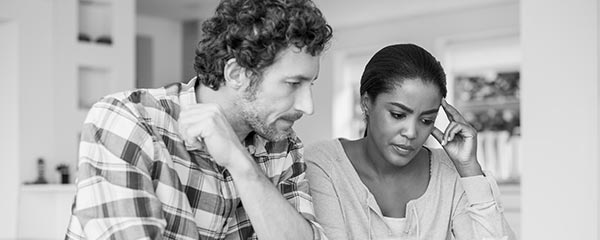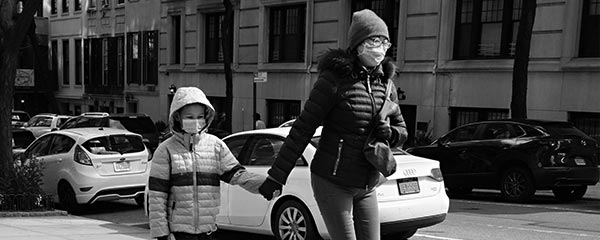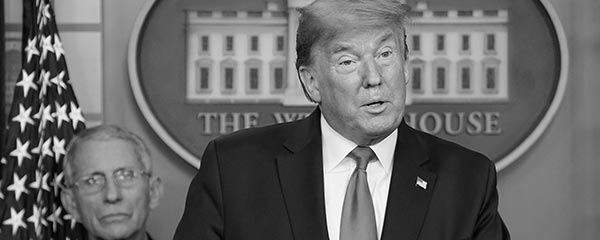Social distancing has been at the core of efforts to slow the coronavirus pandemic -- to reduce the rate of infections and related deaths. Moreover, it is central to most scenarios for restarting the economy and returning to "normal" life. The public health benefits of social distancing depend on rigorous, voluntary compliance by the population. How confident are people in social distancing and what are the implications of their views?
Gallup's Coronavirus tracking poll finds the vast majority of Americans either very (57%) or moderately confident (30%) that social distancing saves lives. A relatively small minority reported skepticism -- 12% are "not at all" or "not too confident."
| Among all Americans | |||||||||||||||||||||||||||||||||||||||||||||||||||||||||||||||||||||||||||||||||||||||||||||||||||
|---|---|---|---|---|---|---|---|---|---|---|---|---|---|---|---|---|---|---|---|---|---|---|---|---|---|---|---|---|---|---|---|---|---|---|---|---|---|---|---|---|---|---|---|---|---|---|---|---|---|---|---|---|---|---|---|---|---|---|---|---|---|---|---|---|---|---|---|---|---|---|---|---|---|---|---|---|---|---|---|---|---|---|---|---|---|---|---|---|---|---|---|---|---|---|---|---|---|---|---|
| % | |||||||||||||||||||||||||||||||||||||||||||||||||||||||||||||||||||||||||||||||||||||||||||||||||||
| Very confident | 57 | ||||||||||||||||||||||||||||||||||||||||||||||||||||||||||||||||||||||||||||||||||||||||||||||||||
| Moderately confident | 30 | ||||||||||||||||||||||||||||||||||||||||||||||||||||||||||||||||||||||||||||||||||||||||||||||||||
| Not too confident | 8 | ||||||||||||||||||||||||||||||||||||||||||||||||||||||||||||||||||||||||||||||||||||||||||||||||||
| Not all confident | 4 | ||||||||||||||||||||||||||||||||||||||||||||||||||||||||||||||||||||||||||||||||||||||||||||||||||
| ���۴�ýPanel, April 10-26, 2020 | |||||||||||||||||||||||||||||||||||||||||||||||||||||||||||||||||||||||||||||||||||||||||||||||||||
Generally, this high degree of confidence was evident across diverse demographic groups defined by age, marital status, income level, ethnicity, city/suburban/rural residence, residential population density, and having a child under 18 or not. That said, men were more likely to express skepticism (18%, vs. 7% for women), as were those living in small towns or rural areas (16%, vs. 8% of those in cities).
Strikingly, the largest difference in confidence was for political affiliation: 78% of Democrats and 50% of independents, but only 36% of Republicans, reported being "very confident" that social distancing saves lives; and almost a quarter of Republicans expressed some skepticism (23% "not too" or "not at all confident").
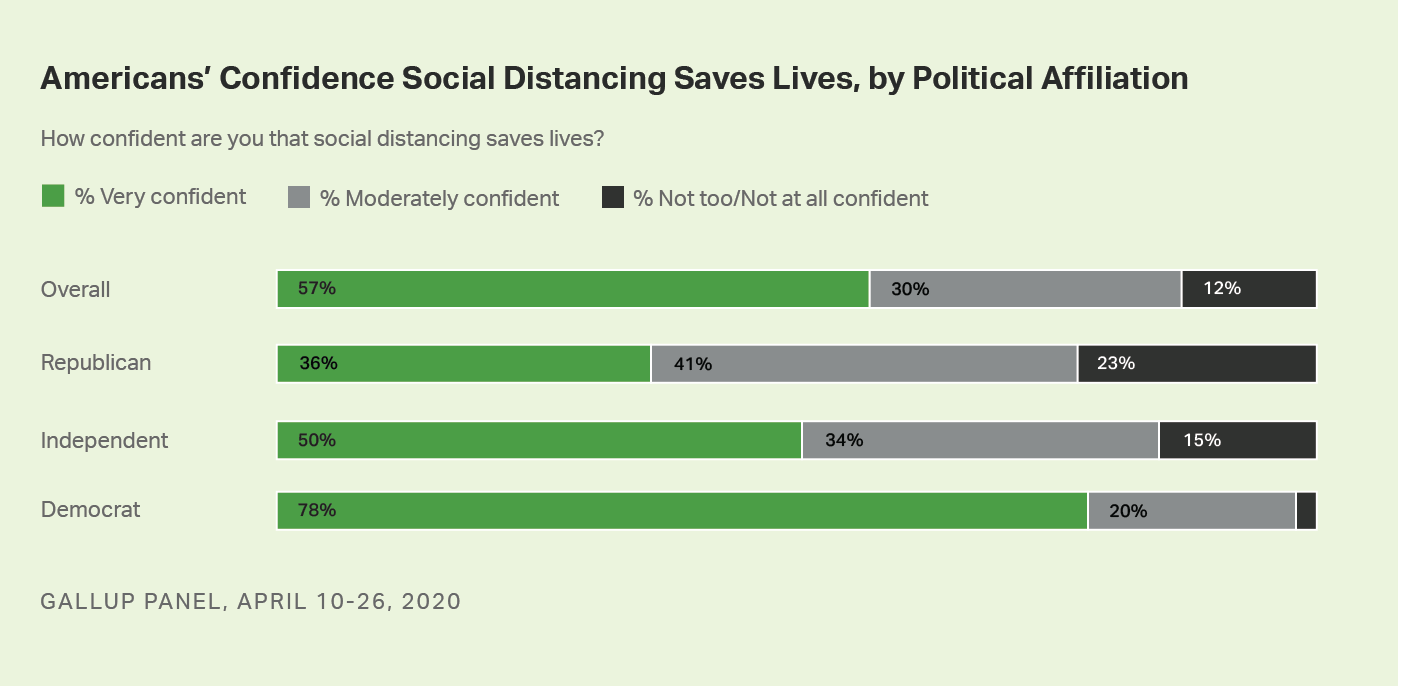
Confidence in Social Distancing and Willingness to Return to Normal
Is confidence in social distancing associated with adaptive and precautionary behavior relevant to public health? Might skepticism undermine the effectiveness of this public health effort?
Americans were asked how soon they would return to normal day-to-day activities, if there were no government restrictions and people were able to decide for themselves about being out in public. Only 21% of Americans responded "right now," but 77% of the skeptical group (those not confident in the effectiveness of social distancing) said this, compared with only 7% of the "very confident" group. Americans expressing moderate confidence were more likely than those very confident to plan an immediate return to normal (22%) -- still far more cautious than the skeptical group.
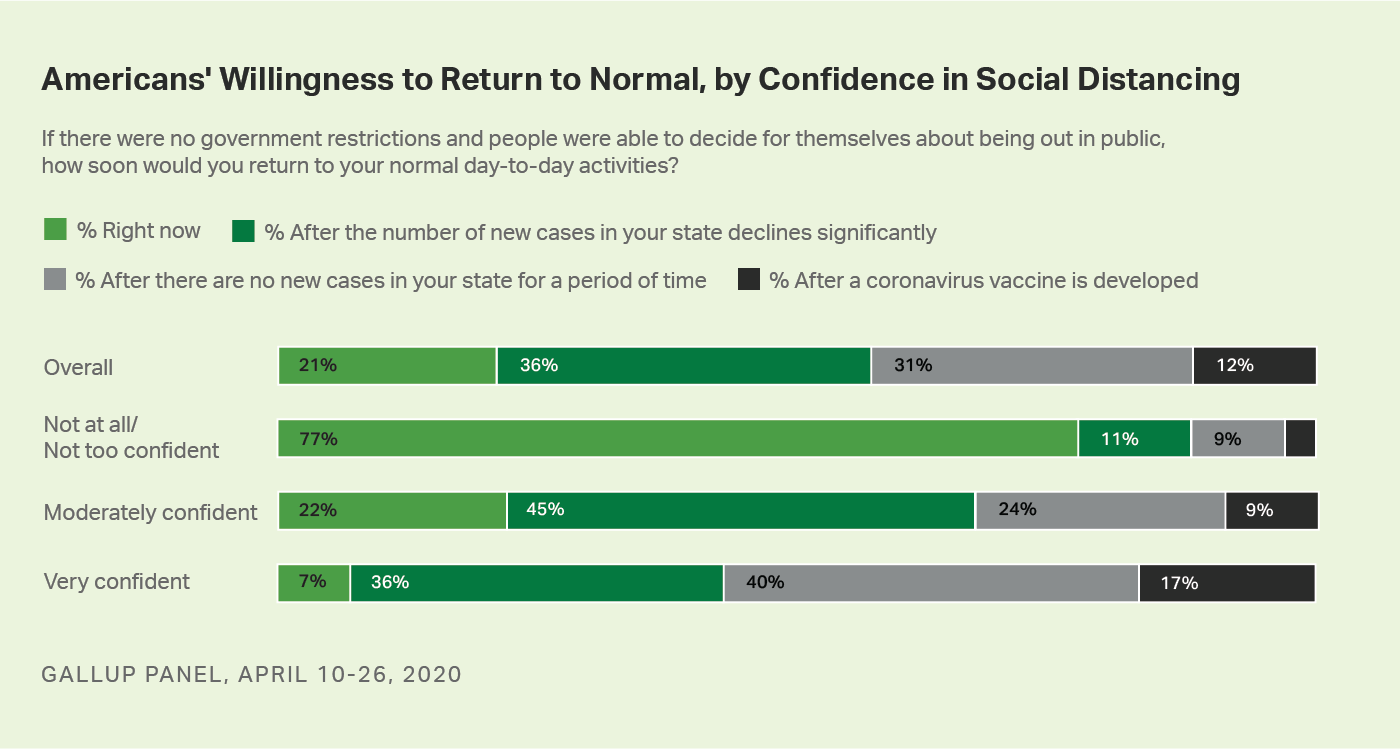
Confidence in Social Distancing and Compliance With Public Health Orders
Asked about the likelihood of complying with a public health official's recommendation to stay at home for 30 days because of a serious outbreak of the coronavirus in their community, 60% of U.S. adults responded that they are "very likely" to do this, and only 10% said "very unlikely." However, 40% of the skeptical group are "very unlikely," versus 5% of the very confident group. Nearly half (45%) of those expressing moderate confidence are very likely to stay at home for a month if asked, significantly more than the least confident but less than the most confident.
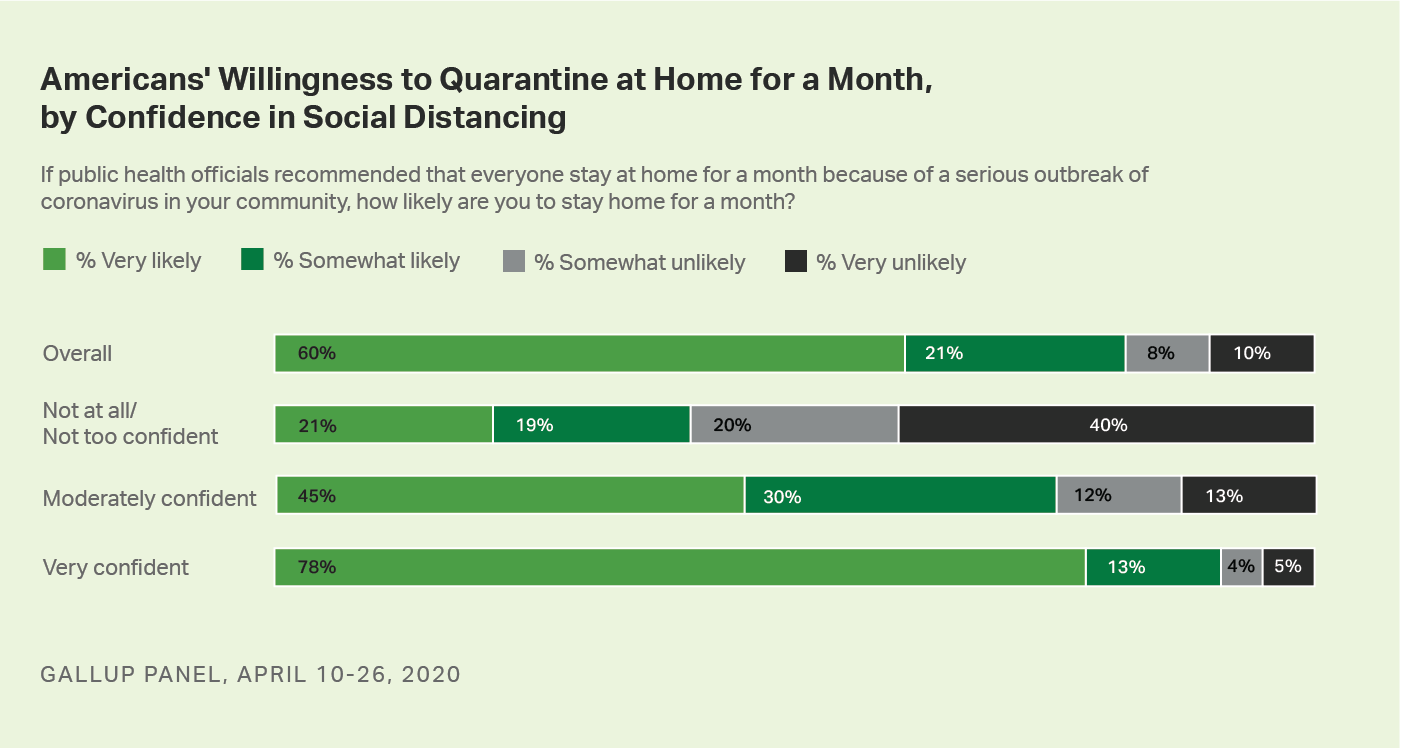
The survey also asked about people's practicing of social distancing, with 24% reporting that in the previous 24 hours, they have been "completely isolated," while 46% report being "mostly isolated," 18% "partly isolated" and 8% "a little isolated." Only 4% reported that they did not make any effort to isolate themselves from people outside their household. However, reported isolation was substantially less in the skeptical group than the others, with 33% isolating only "a little" or not at all. This is substantially higher than the 5% of those very confident in social distancing.
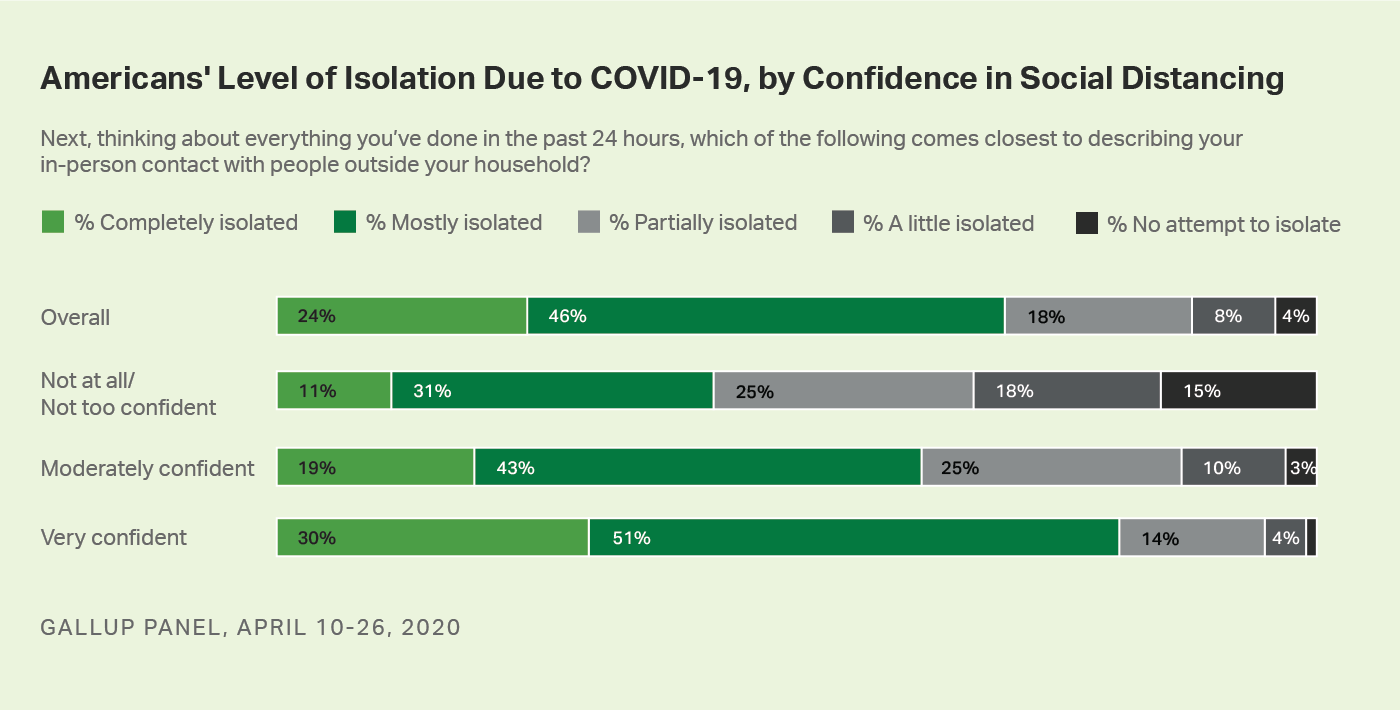
Bottom Line
While most Americans are very confident that social distancing saves lives, nearly one-third hedge, saying they are moderately confident, while about one in eight are outright skeptical. It is not surprising that the skeptics tend to be more willing to return to normal activities immediately (without a decrease or pause in new cases, or a vaccine), less willing to stay home for a month if recommended, and less inclined to self-isolate or avoid various social activities. What's more interesting -- and perhaps important -- is that those moderately confident are also moderately willing to defy long-term shelter-in-place orders and are not as vigilant about always or mostly self-isolating. Yet relatively few in this group say they would go back to normal immediately if it were up to them.
Moderately confident Americans may be the most productive target for public health and political officials' messages about the effectiveness of social distancing, assuming they would be receptive to the message. Or perhaps they have already heard the message and rejected it.
Learn more about how the works.

